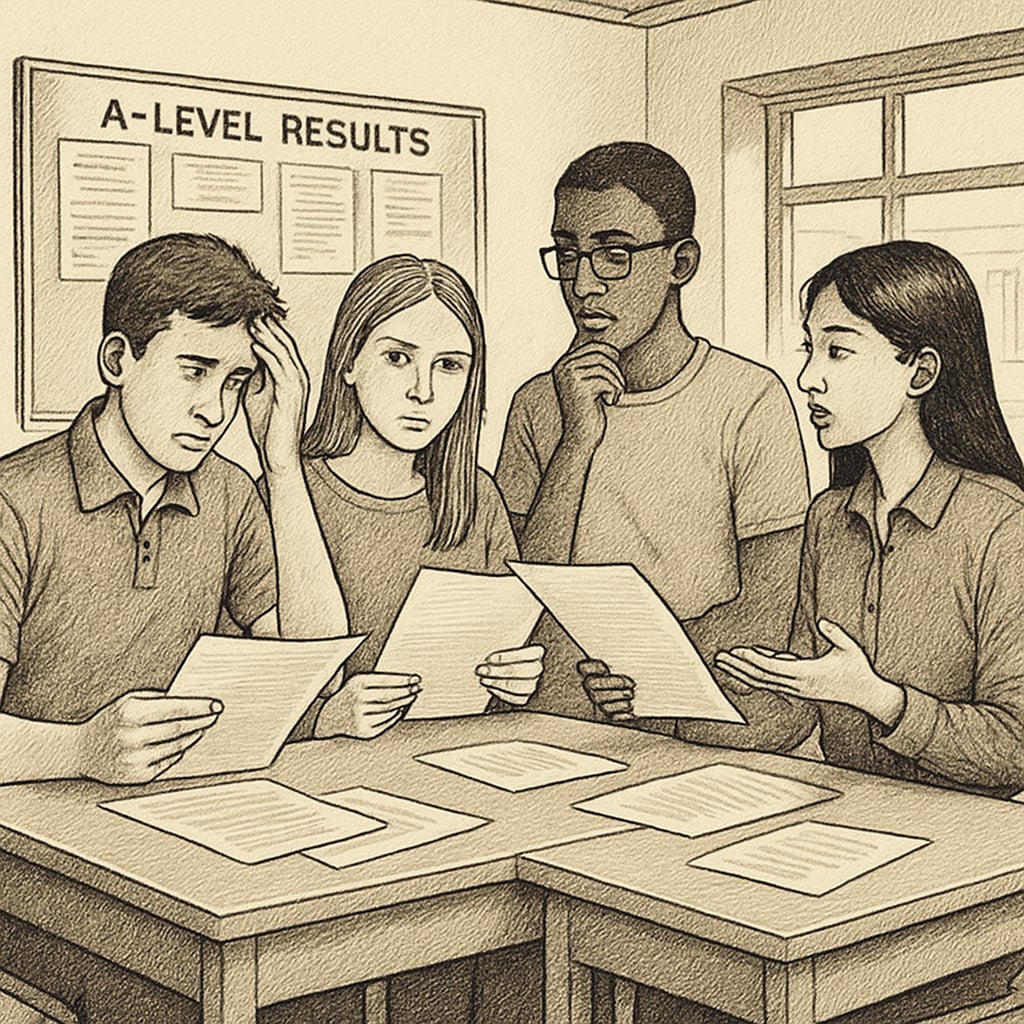When A-level results don’t meet expectations, students and their families are often left grappling with tough decisions. These results, while important, don’t necessarily define one’s future but do force individuals to consider alternative educational paths. From retaking A-levels to enrolling in lower-ranked universities or opting for international foundation courses, each route comes with its own set of challenges and advantages. This article explores these options to help students make informed decisions and regain their confidence.

Retaking A-levels: A Second Chance
Retaking A-levels is a common choice for students who believe their poor performance doesn’t reflect their true abilities. This option allows individuals to focus on specific subjects, improve grades, and aim for admission to their preferred universities.
However, this path requires significant commitment and resilience. Students often face pressure to perform well while navigating the emotional challenges of repeating a year. Additionally, the financial cost of retaking exams and tuition fees can be burdensome for some families.
Despite these challenges, retaking A-levels can pay off for motivated students who are confident in their ability to improve. Success stories often highlight the importance of proper planning, consistent study habits, and seeking guidance from tutors or mentors.
Lower-Ranked Universities: A Practical Option
Another option is enrolling in a lower-ranked university within the student’s home country. While these institutions may not have the prestige of elite universities, they can still provide quality education and valuable opportunities for personal and professional growth. Many students thrive in smaller, less competitive environments where they can receive more attention and support.
However, it’s important to research the university thoroughly. Factors such as course content, faculty expertise, campus facilities, and student support services can significantly impact the overall experience. Students should also consider whether the university aligns with their long-term career goals.
This path is particularly appealing for those who value affordability and proximity to home, as tuition fees at lower-ranked universities are often more reasonable compared to top-tier institutions.

International Foundation Courses: Expanding Horizons
For students seeking a fresh start, international foundation courses can offer an exciting opportunity. These programs, often designed for international students, provide a preparatory year that bridges the gap between secondary education and university. They focus on academic skills, language proficiency, and subject-specific knowledge to prepare students for undergraduate studies abroad.
Studying abroad can help students develop independence, cultural awareness, and global perspectives. Additionally, many foundation courses are tied to universities, offering guaranteed progression to undergraduate programs if students meet specific requirements.
However, this option comes with challenges, including higher costs for tuition and living expenses, visa requirements, and potential language barriers. Students must weigh these factors against the benefits of international exposure and access to globally recognized institutions.
Key Considerations for Decision-Making:
- Self-Reflection: Assess your strengths, weaknesses, and long-term goals.
- Financial Feasibility: Understand the costs associated with each option and discuss them with your family.
- Research: Dive deep into potential institutions, courses, and future prospects.
- Seek Guidance: Consult teachers, career advisors, or mentors for expert advice.
Turning Challenges Into Opportunities
While poor A-level results can feel like a setback, they often lead to unexpected opportunities and growth. By carefully evaluating each educational path and considering both short-term and long-term implications, students can make choices that align with their aspirations. Whether retaking exams, attending a lower-ranked university, or pursuing international foundation courses, the key lies in resilience, adaptability, and determination.
Remember, one set of grades does not define your potential. With the right mindset and guidance, you can transform this challenge into a stepping stone for future success.
For more information on academic pathways and global education options, explore resources such as A-level on Wikipedia and Academic Degrees on Britannica.


